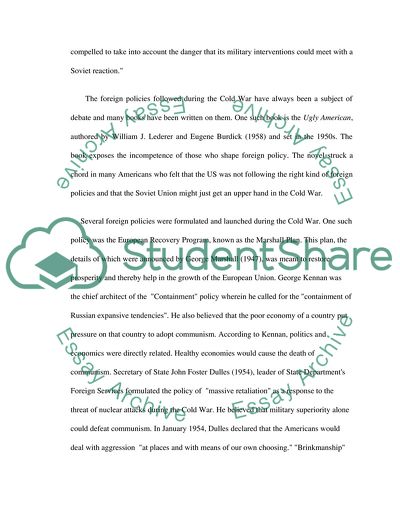Cite this document
(“US Foreign Policy during the Cold War Essay Example | Topics and Well Written Essays - 1500 words”, n.d.)
Retrieved from https://studentshare.org/history/1544785-us-foreign-policy-during-the-cold-war
Retrieved from https://studentshare.org/history/1544785-us-foreign-policy-during-the-cold-war
(US Foreign Policy During the Cold War Essay Example | Topics and Well Written Essays - 1500 Words)
https://studentshare.org/history/1544785-us-foreign-policy-during-the-cold-war.
https://studentshare.org/history/1544785-us-foreign-policy-during-the-cold-war.
“US Foreign Policy During the Cold War Essay Example | Topics and Well Written Essays - 1500 Words”, n.d. https://studentshare.org/history/1544785-us-foreign-policy-during-the-cold-war.


